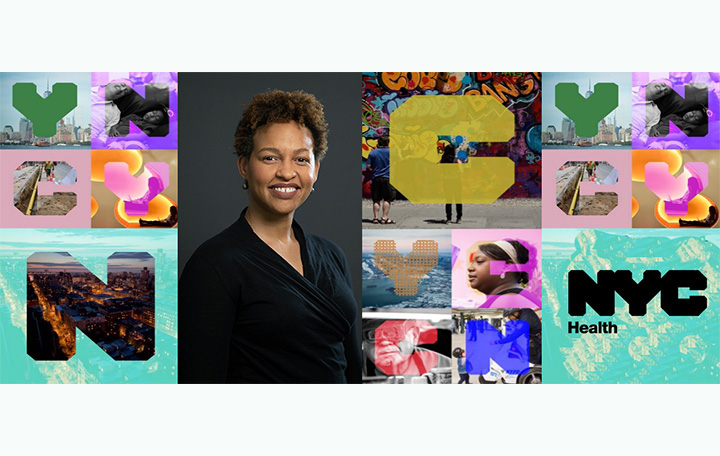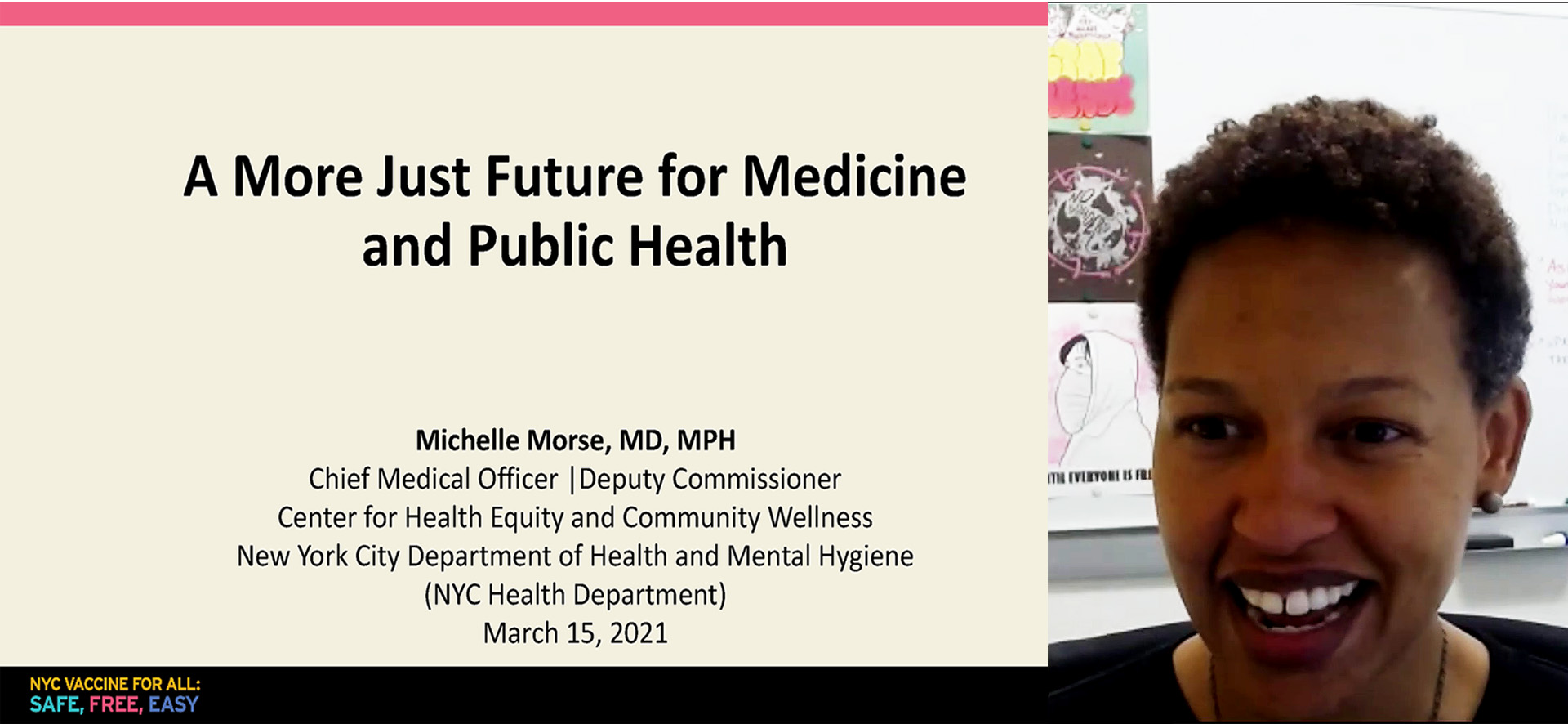Health equity is central to FPHNYC’s work to improve the health of all New Yorkers. On March 15, 2022, Dr. Michelle Morse, the Health Department’s Chief Medical Officer and Deputy Commissioner, joined Sara Gardner, FPHNYC’s Executive Director, for a Public Health Talk “What Comes Next After Recognizing Racism as a Public Health Crisis?“
Dr. Michelle Morse is the Health Department’s first Chief Medical Officer, appointed in February 2021. She leads the agency’s work in bridging public health and health care, including reducing premature mortality, increasing an understanding of health inequities, and ending racial inequities in the leading causes of preventable death. This places her at the forefront of the Department’s commitment to address health inequities and end systemic racism in public health and medicine.
“There’s a natural nexus between public health and healthcare delivery,” Dr. Morse said. “It’s something we need to continue building on…bringing more visibility to the biggest health equity challenges and moving resources to the places, spaces, and programs that address those challenges in a way that is place-based and as well as city-wide.”
A landmark resolution by the New York City Board of Health in 2021 declared racism a public health crisis and directed the Health Department to expand its anti-racism work. In her Public Health Talk presentation, Dr. Morse outlined three pillars of the vision and goals for the Office of Chief Medical Officer: Bridging Public Health and Health Care, Anti-Racist Health Policy, and Accountability.
As an example of the Department’s anti-racism initiatives, Dr. Morse spoke about the newly formed NYC Coalition to End Racism in Clinical Algorithms (CERCA). Clinical algorithms are tools used by clinicians to guide their decision-making. These algorithms often use “race adjustment,” which can negatively impact the treatment and care for persons of color. The 12 institutional members of CERCA have pledged to end race adjustment and create plans to evaluate racial inequities and patient engagement. [September 2022 update: read the Inaugural Report on CERCA’s first year progress].
Addressing inequities in maternal health is another area of particular concern for Dr. Morse. She spotlighted the disturbing statistic that Black, non-Latina women in NYC are 9.4 times more likely to die during and after childbirth than White, non-Latina women. The Health Department is committed to improving maternal health for people throughout NYC, but it has identified Brooklyn as the epicenter of the maternal equity crisis.
“Brooklyn is the biggest borough by population and has the highest number of births in the City,” Dr. Morse explained. “What we’re trying to do is use a data-driven, anti-racist, and a place-based approach over four years to improve birth equity in the borough.”
Regarding the COVID-19 pandemic, Dr. Morse pointed out that Black and Latino New Yorkers still make up a disproportionate number of cases of infection, hospitalizations, and deaths. She acknowledged how facts like this could make it hard for people to have confidence in the City’s commitment to addressing health disparities — even though actions like the Board of Health’s declaration of racism as a public health crisis are, she said, a “strong signal of progress.” However, the extent to which systemic racism permeates many aspects of American society remains a formidable contributor to the health inequities of Black and Latino people.
“We can’t stand to see another six decades of inequity in household income, life expectancy, incarceration rates, college graduation, unemployment rates, and homeownership rates,” Dr. Morse said. “If we are serious about racial justice and declaring racism a public health crisis, these are the kinds of trends that we have to turn around.”
Resources
Download Dr. Morse’s Presentation (PDF)
Board of Health Resolution Declaring Racism a Public Health Crisis.
Coalition to End Racism in Clinical Algorithms (CERCA).
The Bridge: newsletter of the Chief Medical Officer.
Book: Killing the Black Body, by Dorothy Roberts.
Book: Medical Apartheid, by Harriet A. Washington.
Report: Racial Inequities in COVID-19 Hospitalizations During the Omicron Wave in NYC.


